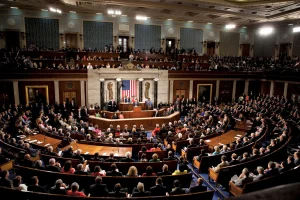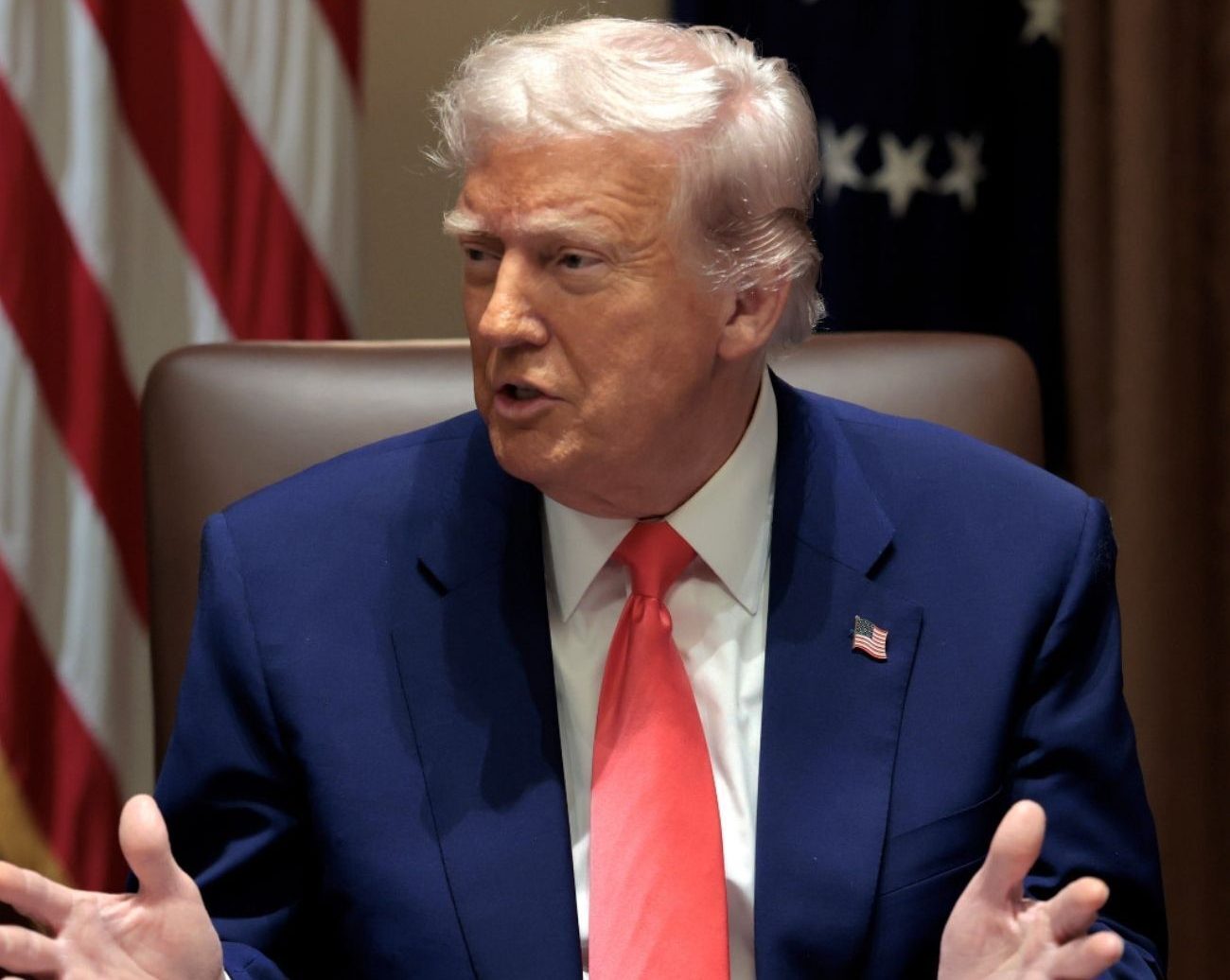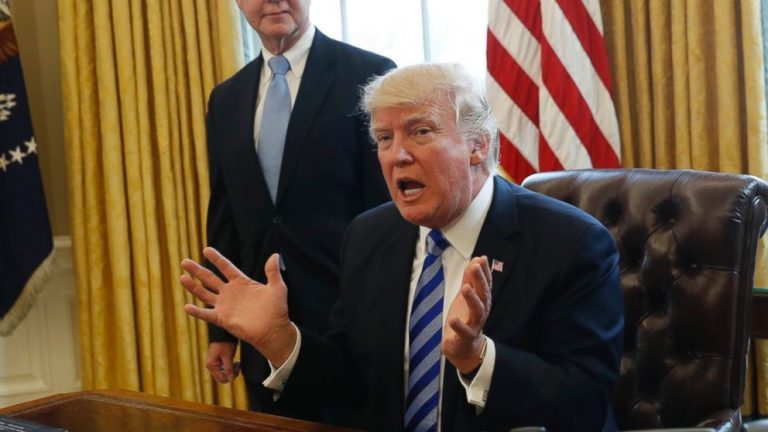The Senate took a dramatic step this week that reshaped the pace and politics of federal appointments. In a single maneuver, Senate Republicans confirmed more than 100 of President Donald Trump’s nominees — a sweeping approval wave that instantly cleared the backlog of pending executive-branch appointments.
The mass confirmations, unprecedented in scale since the chamber’s recent rules overhaul, reflect an increasingly aggressive approach by GOP leadership to bypass lengthy battles with Senate Democrats and rapidly stock the administration with its preferred personnel.
And while the move does not touch Cabinet-level or judicial nominees, its impact across federal agencies is enormous.
A Quiet Rule Change That Triggered a Major Power Shift
The momentum behind the mass confirmations stems from a rule change Republicans pushed through last month — using a simple-majority, party-line vote often referred to as the “nuclear option.”
The change allows the Senate to confirm most executive-branch nominees en bloc, meaning dozens or even hundreds of appointees can be approved with a single vote instead of individually.
The result: less debate, fewer procedural hurdles, and dramatically less power for the minority party.
Democrats had used procedural delays for months to stall Trump’s picks, resulting in a bottleneck that hampered agency operations. Republican leaders argued the slowdown was intentional, partisan, and designed to sabotage the administration’s ability to function.
By changing the rules, Republicans effectively detonated the blockade.
The Largest Confirmation Block Since the Rule Overhaul
Once the new rules were in place, Republican leaders moved swiftly.
The latest action produced the largest batch of approvals yet — more than 100 nominees cleared in one sweep.
Among them:
-
Herschel Walker, former Senate candidate, now confirmed as U.S. Ambassador to the Bahamas
-
Sergio Gor, former director of the White House Presidential Personnel Office, confirmed as U.S. Ambassador to India
-
Numerous deputy secretaries, assistant secretaries, agency executives, and regulatory officials
While individual nominees often spark political controversy, approving them as a collective effectively eliminated the usual public brawls, hearings, and prolonged debates that accompany high-profile appointees.
Republicans say the approach is efficient.
Democrats called it reckless.
Why GOP Leaders Rejected Recess Appointments
Some Republicans considered urging President Trump to use recess appointments — a constitutional workaround allowing a president to fill vacancies temporarily while the Senate is away.
But GOP leadership ultimately shut down the idea.
Their concern: If used now, Democrats could deploy the same tactic when they return to power.
Senate leaders rarely endorse strategies they fear will be used against them later, and the precedent of recess appointments was a line the caucus was unwilling to cross.
Instead, they focused on structural rule changes that allow the majority to clear nominations with speed while shielding the process from minority obstruction.
A Major Win for Trump Amid Ongoing Legislative Gridlock
For Trump, the move is a major victory.
His administration has repeatedly blasted the Senate’s slow pace, accusing Democrats of using procedural roadblocks to undermine national security, disrupt agency continuity, and hobble his second-term agenda.
Trump had long pressured the Senate to act, at one point urging GOP leaders to “delay their recess” until nominees were confirmed. According to reports, he warned Republicans that important national-security and law-enforcement posts were being left vacant for no legitimate reason.
Now, with more than 100 new appointees installed across the federal government, the administration has renewed momentum.
The Backstory: Months of Stalled Confirmations and Mounting Frustration
The roots of the bottleneck stretch back months, including a separate struggle over federal judicial nominees. Senate Democrats invoked various procedural tools — from “hold” requests to forced roll-call votes — to slow the confirmation process to a near standstill.
Complicating matters was the Senate’s longstanding “blue slip” tradition, which allowed home-state senators, regardless of party, to approve or block judicial nominees. Trump grew increasingly frustrated with Senate Judiciary Committee Chairman Chuck Grassley for preserving this practice, arguing it gave Democrats undue influence.
Republicans debated numerous proposals to eliminate or weaken blue slips, reduce debate time, or limit minority obstruction.
Among the ideas floated:
-
A single vote to confirm multiple nominees at once
-
Shortening the allowable time for debate
-
Making certain categories of nominees non-debatable
-
Reducing the number of procedural votes required
While no party ever likes to resort to a nuclear option, Senate Republicans concluded Democrats had weaponized procedural rules to such a degree that major reforms were unavoidable.
Katie Britt’s Working Group and the Summer Negotiations
Sen. Katie Britt of Alabama became the face of a GOP-led working group tasked with negotiating new confirmation rules.
“Everybody had been talking through various options,” Britt said after the internal meetings. She argued that the process ultimately “empowered the committee” and brought Republicans closer together on the issue.
The group even worked through part of the August recess to find a strategy palatable enough to unite Republicans while avoiding a total procedural meltdown.
Their efforts culminated in the rule change Republicans adopted last month — a turning point that made the 100- nominee approval possible.
The August Showdown: Democrats Demand Roll-Call Votes
Earlier in the summer, Democrats forced individual roll-call votes on even routine nominees, delaying the Senate’s planned August recess.
Majority Leader John Thune threatened to keep the chamber in session through the weekend to complete confirmations. Trump publicly encouraged leaders to stay in Washington until his nominees were approved.
Ultimately, only seven nominees were confirmed before senators left town, despite more than 150 waiting.
A broader deal collapsed after negotiations between Republicans, Democrats, and the White House fell apart.
That breakdown set the stage for the GOP’s rule-changing strategy.
Jeanine Pirro: The High-Profile Confirmation That Slipped Through
While most nominees were stuck in limbo, one prominent figure did win confirmation earlier in the process: Jeanine Pirro, Trump’s pick to serve as Washington, D.C.’s top federal prosecutor.
Pirro — a former judge, prosecutor, and longtime Fox News personality — faced intense attention, but her nomination cleared the Senate hours before lawmakers departed for recess. Her confirmation demonstrated that high-profile nominees could still advance under certain conditions, but paved the way for Republicans to argue that the rest of the backlog required sweeping procedural reform.
What Comes Next
With over 100 new officials now approved, the federal bureaucracy is poised for rapid reshaping. Democrats warn that the new rules could permanently undermine deliberative norms. Republicans argue the Senate will function more effectively under streamlined procedures.
The next test will come when judicial nominations return to the floor — where battles historically become far more explosive.
For now, the administration has scored a major victory, and the Senate has signaled that the era of slow-motion confirmations may be ending.

James Jenkins is a celebrated Pulitzer Prize-winning author whose work has reshaped the way readers think about social justice and human rights in America. Raised in Atlanta, Georgia, James grew up in a community that instilled in him both resilience and a strong sense of responsibility toward others. After studying political science and creative writing at Howard University, he worked as a journalist covering civil rights issues before dedicating himself fully to fiction. His novels are known for their sharp, empathetic portraits of marginalized communities and for weaving personal stories with broader political realities. Jenkins’s breakout novel, Shadows of Freedom, won national acclaim for its unflinching look at systemic inequality, while his more recent works explore themes of identity, resilience, and the fight for dignity in the face of oppression. Beyond his novels, James is an active public speaker, lecturing at universities and participating in nonprofit initiatives that support literacy and community empowerment. He believes that storytelling is a way to preserve history and inspire change. When not writing, James enjoys jazz music, mentoring young writers, and traveling with his family to explore cultures and stories around the world.









